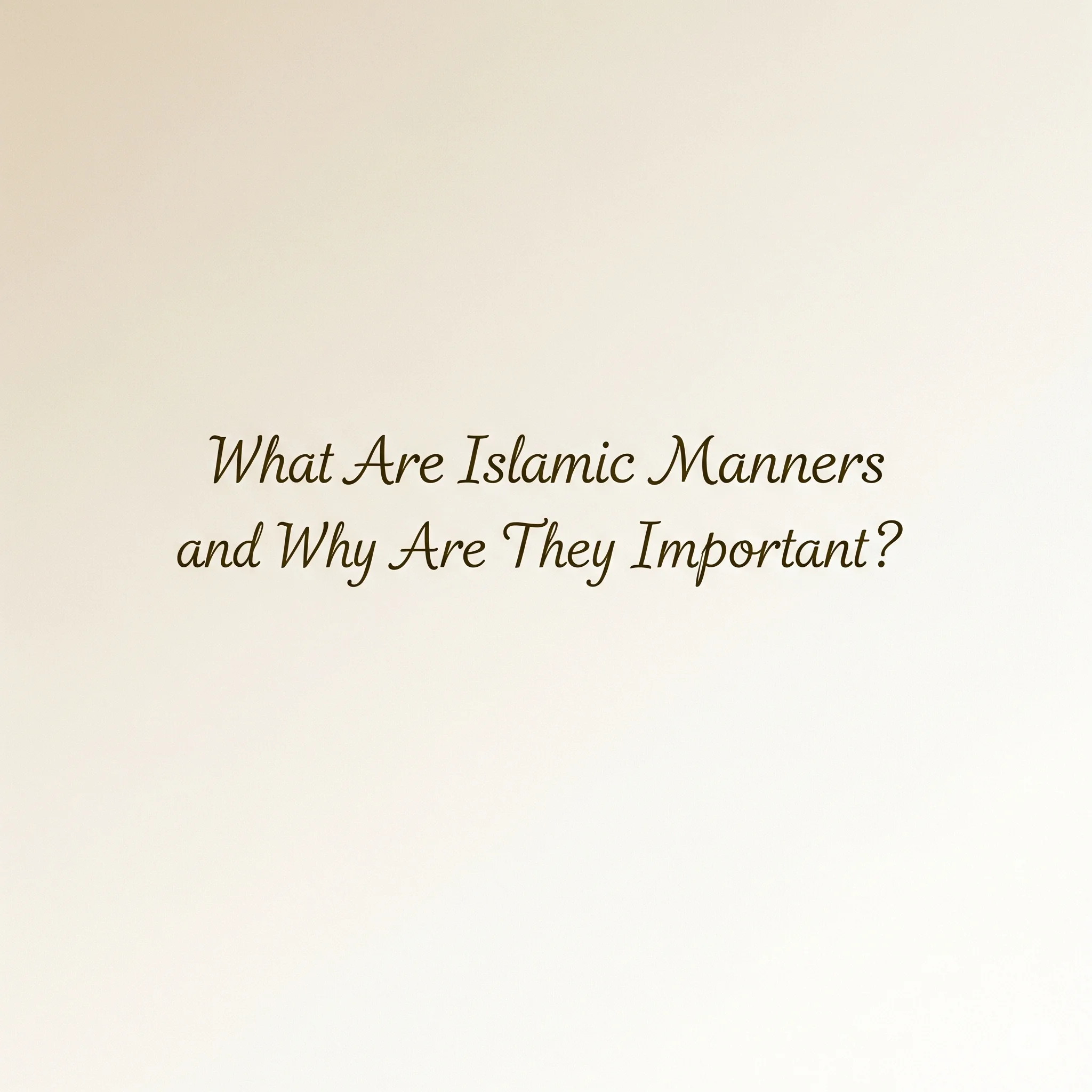Sheikh Abdur Rehman
August 09, 2025 06:56 am

Islamic manners, or adab, are the set of moral values and etiquettes taught by the Qur’an and Sunnah. They guide how a Muslim behaves with Allah, with people, and even with the environment. Saying “Assalamu Alaikum,” speaking gently, showing respect to elders, and avoiding harmful actions are all part of these manners. They’re not just about appearances — they reflect the state of your heart and your obedience to Allah.
Islamic etiquette isn’t limited to the mosque or religious gatherings. It’s about how you talk, walk, eat, and even how you use your phone. From greeting strangers with kindness to smiling at your family, these small acts carry great rewards. The Prophet Muhammad (peace be upon him) said that even a smile is charity — showing that good manners can be woven into the simplest moments of life.
Practicing good manners brings peace to your heart and harmony to your relationships. Treating others with kindness reduces conflicts, builds trust, and creates a positive environment. Studies in psychology show that kindness and respect lower stress and improve mental well-being — confirming what Islam taught centuries ago.
Every act of good etiquette is a step towards pleasing Allah. When you follow the manners taught by the Prophet (peace be upon him), you’re not just being polite — you’re obeying a command. This obedience deepens your faith, increases your love for Allah, and brings barakah into your life.
The Sunnah includes beautiful daily etiquettes, such as starting your day with Bismillah, greeting your family warmly, avoiding harsh words, and ending the night with forgiveness in your heart. These habits protect your soul, keep your relationships strong, and ensure you live each day in a way that earns Allah’s pleasure.
Tags: